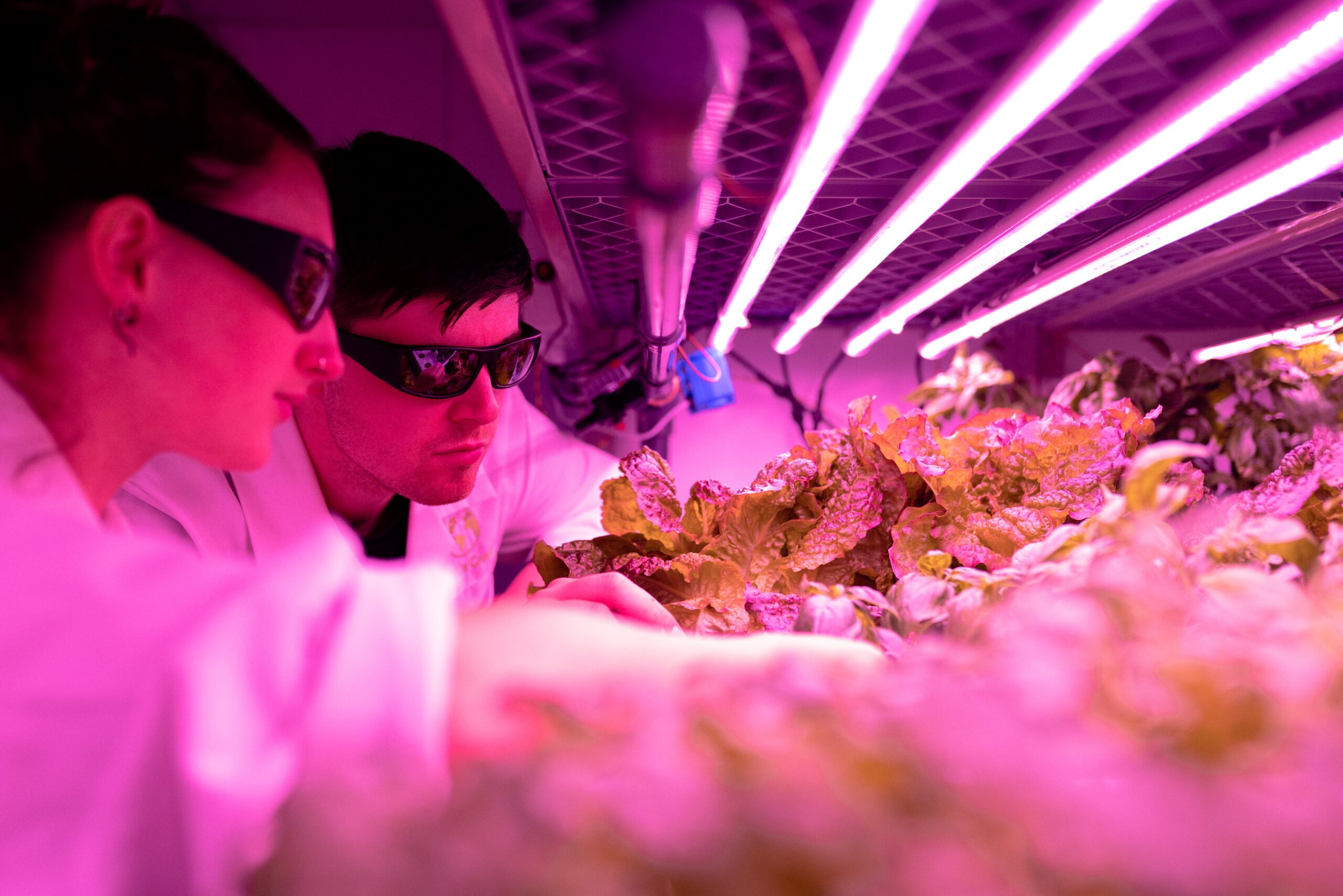Agriculture is the foundation of the global food industry that provides food for millions of people around the world. However traditional farming practices typically are detrimental to the environment, resulting in the erosion of soils, pollution of water sources, and loss of biodiversity. As the global population increases increasing the need for sustainable agriculture methods is more important than ever.
Thanks to advances in the field of artificial intelligence (AI) transformed agriculture, allowing farmers to use methods of precision farming, monitor the health of their soils, and develop techniques for crop rotation that encourage sustainable and eco-friendly agriculture. In this article, we’ll examine the role of AI in ensuring the sustainability of agriculture as well as its application, benefits, and consequences for the future production of food.
Precision Farming Techniques
Precision agriculture, often referred to as precision farming, is the application of technology to maximize yields of crops while reducing inputs like fertilizers, water, as well as pesticides. The techniques of precision farming that use AI leverage data from drones, satellite sensors, satellites, as well as farm equipment to track the growth of crops as well as soil conditions and weather patterns in real-time. In analyzing the information, AI algorithms can generate suggestions and insights to assist farmers in making more informed decisions and making better use of their resources.
For instance, AI algorithms can analyze satellite images to determine areas of fields that require fertilizer or irrigation application, allowing farmers to plan their resources more precisely and decrease the amount of waste. Additionally, drones that are equipped with multispectral cameras can create high-resolution images of crops, which allows farmers to check the health of their plants and spot diseases or pests early, which reduces their need for chemical treatments.
Soil Health Monitoring
Healthy soil is vital to sustainably farming since it serves as the base for the growth of plants and ecosystem services, such as water retention and nutrient cycling. AI technologies allow farmers to track soil health better, analyze soil characteristics, and improve methods of managing soil to increase the fertility of soils and their resilience.
Sensors for soil that are powered by AI and monitoring systems evaluate soil temperatures, moisture pH levels, and nutrients in real-time giving farmers insights into the soil’s health and fertility. Through the integration of soil health data along with forecasts for weather crops models, weather forecasts, and records from the past, AI algorithms can generate specific recommendations for soil management techniques including cover cultivation, conservation tillage organic amendments, and cover cropping. These practices improve soil health and increase productivity.
Crop Rotation Strategies
It is a sustainable farming method that involves switching the varieties of crops being grown in a field for some time to increase the health of soil control the spread of diseases and pests and increase yields. AI technologies allow farmers to apply crop rotation strategies more efficiently by studying the past, historical information, weather patterns, and soil characteristics to determine optimal sequences of crops and rotations.
For instance, AI algorithms can analyze crop performance data from earlier seasons and soil health indicators as well as forecasts for pests and diseases to recommend a schedule for crop rotation that maximizes yields while reducing the chance of soil loss or pests. By varying the crop rotations and including legumes and covers crops into their rotations, growers can increase soil fertility, lessen dependence on synthetic fertilizers and pesticides, and encourage the diversity of their farms.
Benefits of AI in Agricultural Sustainability
The incorporation of AI in agriculture has numerous advantages for consumers, farmers, and the natural environment, which include:
- Profitable and higher-yielding crops by optimizing resource management.
- Lower environmental impact of the chemical inputs, water use in addition to greenhouse gas emissions.
- Improved soil health and fertility which leads to more robust and productive agriculture systems.
- Improved management of diseases and pests by earlier detection as well as targeted actions.
- Increased resilience to severe weather conditions, which reduces risks and uncertainty for farmers.
- Improved food safety and quality by using precision farming techniques and soil management practices that are sustainable.
How can we define artificial intelligence (AI) in the agricultural sector and how does it impact sustainability?
Artificial intelligence in agriculture is the application of modern technologies, like machine algorithms for learning as well as data analytics and remote sensing, to optimize farming practices and improve sustainability. AI allows farmers to track the progress of their crops as well as the health of soils and conditions of the weather in real-time and allows for more precise resource management and a lessening of environmental impact. Through the analysis of data from satellites, sensors, and farm equipment AI algorithms can provide insight and suggestions to help farmers make informed decisions to help promote sustainable and environmentally friendly agriculture.
What are the primary uses of AI in ensuring the sustainability of agriculture?
AI has several applications in the field of sustainability for agriculture, such as:
- The use of precision farming techniques to optimize the use of resources and minimize environmental impact.
- Monitoring of soil health for assessing soil fertility, the level of moisture, and nutrient levels.
- Strategies for crop rotation to enhance soil health manage diseases and pests, and improve the diversity of the soil.
- Management of pests and diseases by timely detection as well as targeted intervention.
- Agriculture practices that are climate-smart to help mitigate the effects of climate change and to adjust for changing conditions.
- Sustainable water management strategies that save water resources and reduce demand for irrigation.
How can AI help improve the management of resources and decrease the environmental impact of agriculture?
AI improves resource management and decreases agricultural environmental impacts by allowing farmers to keep track of crop growth as well as soil health and weather conditions more efficiently. Through the analysis of the data from satellites, sensors, and forecasts for weather, AI algorithms provide farmers with insight into the best time for planting as well as irrigation schedules and fertilizer rate applications to reduce wastage and minimize pollution to the environment. Furthermore, AI-driven precision farming techniques allow farmers to choose inputs more precisely, maximizing the use of resources and decreasing dependence on synthetic water and chemicals.
What role can AI play in monitoring soil health as well as monitoring?
AI plays a crucial role in monitoring soil health and management as it allows farmers to evaluate soil fertility, levels of moisture, and the number of nutrients in real-time. Sensors for soil powered by AI and monitoring systems sift through data collected from soil samples, sensors, and satellites to provide information on the soil’s health and soil fertility. Through integrating soil health information with forecasts of weather crops models, weather forecasts, and old data, AI algorithms generate recommendations for soil management techniques, like cover cropping, conservation tillage, and organic amendments that improve soil health and increase productivity.
How can AI assist farmers in implementing sustainable crop rotation strategies?
AI can help farmers implement sustainable strategies for crop rotation by analyzing data about yield as well as soil health indicators and forecasts of pests and diseases to determine the best sequences of crops and rotations. AI algorithms produce recommendations for crop rotation plans that maximize yields while reducing the loss of soil and pests. Through diversifying the rotation of crops by incorporating legumes, and crop cover plants, farmers can improve soil fertility, decrease the requirement for pesticides and fertilizers made from synthetic substances, and increase the diversity of their farms which ultimately aids in sustainable agriculture.
Conclusion
Artificial Intelligence is revolutionizing the agriculture industry by making it possible for farmers to use precise methods of farming, track soil health, and apply techniques for crop rotation that encourage sustainable and eco-friendly agriculture. By harnessing the capabilities of AI to improve the management of resources and soil health and improve crop resilience We can create a more resilient and sustainable food system that can meet the demands of the current and the future.
While we work to develop and further integrate AI into farming and farming, we are getting closer to reaching the goal of sustainability in agriculture, which means ensuring food security, preserving the environment, and promoting prosperity for farmers as well as communities throughout the world. By embracing AI-driven solutions and adopting sustainable practices for farming, we can build an equitable and resilient food system that will feed our planet and its people for generations to follow.







